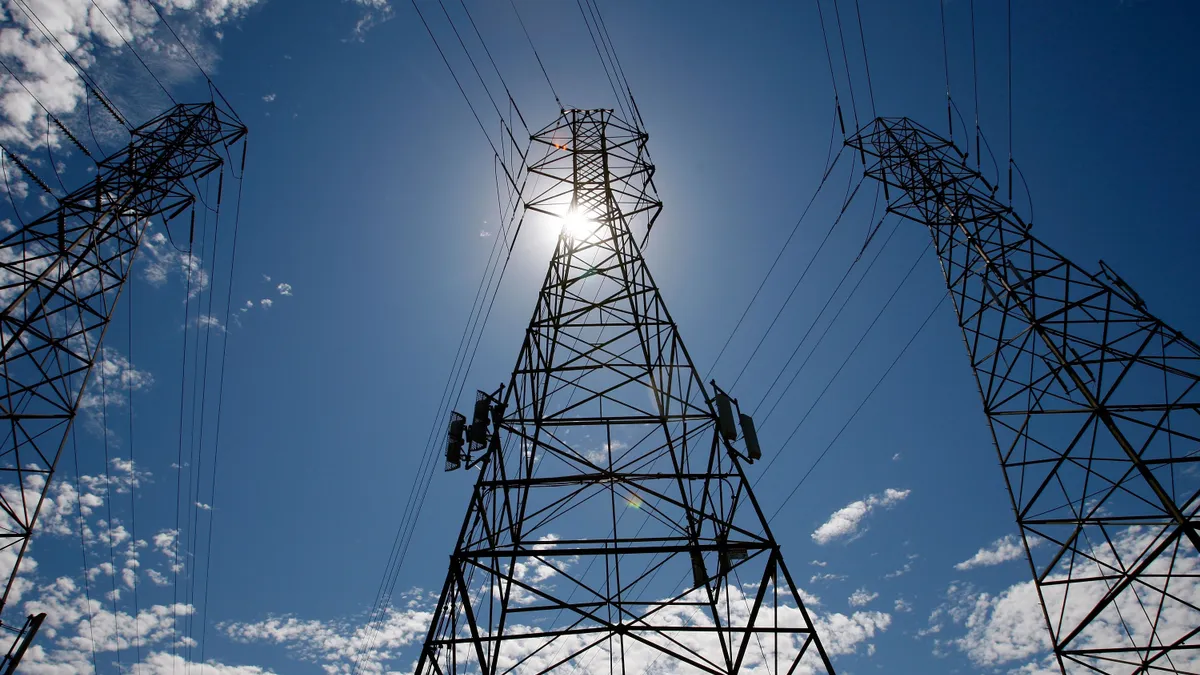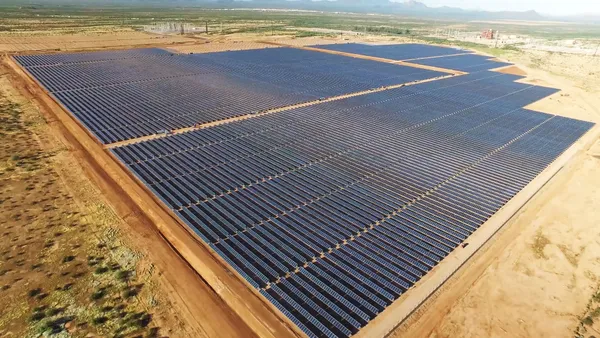Dive Brief:
- CPS Energy has proposed the creation of a net metering alternative modeled on the wholesale markets—a competitive bidding process for power purchase agreements (PPA) among residential and small commercial solar projects, Greentech Media reports.
- Under its pilot proposal, the utility would establish an independent body to set up a platform for bidding and assist local solar installers with customer acquisition. Installers would own the solar systems and compete to sign PPAs with the utility, similar to large-scale power plants. Consumers would receive rebates for energy generated on their monthly bills.
Dive Insight:
CPS Energy's proposal is the utility's third and latest attempt to change net metering policies in San Antonio, Texas. The municipally-owned utility walked back its most recent proposal for a Value of Solar Tariff last year after outcry from local solar installers. Now the utility has a new scheme to value solar based on the wholesale markets.
“Why does the wholesale market work? Because it’s so predictable,” Raiford Smith, vice president of corporate development at CPS, told Greentech Media. “Power-purchase agreements lock in a utility to buy a certain amount of energy and the developer gets a steady pipeline of work. That's what we modeled it after.”
Opinion in the solar industry is reportedly divided.
San Antonio solar installers have not denounced the plan outright because CPS would continue net metering through at least 2015, according to Greentech Media. Solar San Antonio, a nonprofit that represents the local solar industry, is in favor of running the pilot program from CPS, but insists that net metering must also stay in place.
But many in the solar industry are wary of a scheme that would not allow residents to own their solar panels outright and want to keep net metering in place regardless of the pilot. In comments to Solar San Antonio, one member calls the PPA plan "an incredibly concerning development."
"CPS is suggesting that in a year's time, the only DG solar that would be deployed is that for which the utility has issued an RFP," the comment read. "That is a death knell to the industry,"
Many details will need to be worked out if the pilot is to move forward. Setting up the bidding platform could take up to eight months, and local solar installers would need to become third-party providers and guarantee 15-to-20 years of production to viably bid for the PPAs.














